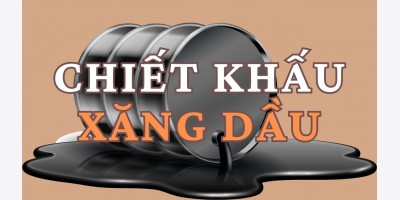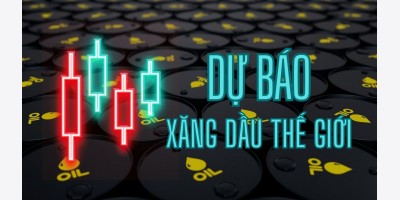Dầu thô ổn định quanh mức 105 USD/thùng
Giá dầu thô phiên châu Á sáng nay vẫn chÆ°a có biến Ä‘á»™ng nào Ä‘áng kể sau khi hồi vá» mức 105 USD/thùng từ cuối phiên Mỹ tối qua. Bất chấp tình hình chiến sá»± ở Libya vẫn Ä‘ang diá»…n biến phức tạp, cÅ©ng nhÆ° sá»± bất ổn ở khu vá»±c Trung Äông leo thang có thể Ä‘e dá»a đến nguồn cung, nhÆ°ng Ä‘iá»u Ä‘ó Ä‘ã không trở thành ná»—i lo lá»›n của thị trÆ°á»ng, mà chủ yếu vẫn là vấn Ä‘á» tiêu thụ ở các nÆ°á»›c phát triển rồi Ä‘ây sẽ giảm bởi những khó khăn vá» kinh tế.
Những thông tin má»›i nhất Ä‘ang nháºn được sá»± quan tâm của giá»›i đầu tÆ° là sá»± kiện hạ mức tín nhiệm tín dụng của cÆ¡ quan định mức Standard & Poor’s Ratings Services đối vá»›i Bồ Äào Nha. Äây sẽ là nÆ°á»›c kế tiếp sau Hy Lạp và Ai Len yêu cầu sá»± trợ giúp từ Ngân hàng Trung Æ°Æ¡ng châu Âu để vay 70 tỉ EUR (99 tỉ USD) nhằm cứu hệ thống tài chính của nÆ°á»›c này. Liên minh châu Âu Ä‘ang đứng trÆ°á»›c nhiá»u thá» thách bởi hàng loạt các nÆ°á»›c thành viên Ä‘á»u Ä‘ang trải qua khó khăn do khủng hoảng tài chính. Các chính sách thắt lÆ°ng buá»™c bụng Ä‘ang được nhiá»u nÆ°á»›c Ä‘Æ°a ra và áp dụng, cho thấy nhu cầu tiêu thụ nhiên liệu rồi Ä‘ây cÅ©ng sẽ được thu hẹp lại.
Trong khi Ä‘ó, số liệu kinh tế tiêu cá»±c từ Mỹ cÅ©ng Ä‘ang khiến các nhà đầu tÆ° hàng hóa không khá»i lo lắng Ä‘ó là Ä‘Æ¡n hàng hóa lâu bá»n của Ä‘ã bất ngá» giảm. Theo báo cáo từ Bá»™ thÆ°Æ¡ng mại Mỹ, Ä‘Æ¡n hàng lâu bá»n của Mỹ bất ngá» giảm 0,9% trong tháng 02 sau khi tăng 3,6% trong tháng 01.
Äến 8h25 sáng nay (giá» Việt Nam), giá dầu thô WTI giao kỳ hạn tháng 05 Ä‘ang dao Ä‘á»™ng ở mức 105,37 USD/thùng, không có gì thay đổi so vá»›i chốt phiên Mỹ tối qua. Tuy nhiên tổng thể trong tuần này, giá dầu thô WTI Ä‘ã tăng 4,3% so vá»›i tuần trÆ°á»›c và so vá»›i cùng kỳ năm ngoái thì giá cÅ©ng Ä‘ã tăng 31%.
Còn giá dầu thô Brent giao tháng 05 chốt phiên giao dịch hôm qua tăng 17 cent, tÆ°Æ¡ng Ä‘Æ°Æ¡ng 0,2% lên mức 115,72 USD/thùng, mức cao nhất kể từ ngày 09/03.
Má»›i Ä‘ây, Thủ tÆ°á»›ng Äức Angela Merkel Ä‘ã kêu gá»i thế giá»›i tẩy chay dầu thô của Libya, Ä‘ây nhÆ° là cách để ngăn lại dòng chảy tài chính đổ vào việc đầu tÆ° quân sá»± của tổng thống Qaddafi.
Libya là quốc gia sản xuất dầu mỠđứng thứ ba tại châu phi, khả năng xuất khẩu dầu của nÆ°á»›c này sẽ không đến được thị trÆ°á»ng châu Âu trong nhiá»u tháng tá»›i vì bị “cấm váºn”.
Oil Trades Near Two-Day Low on European Demand, U.S. Economy
By Ben Sharples
March 25 (Bloomberg) -- Oil traded near a two-day low in New York as signs of weakening demand in the U.S. and Europe overshadowed concerns that the conflict in Libya and unrest in the Middle East threaten crude supplies.
Futures dropped from the highest in more than two years after Fitch Ratings and Standard & Poor’s Ratings Services cut Portugal’s credit rating and U.S. durable goods orders unexpectedly fell. Allied warplanes carried out further strikes against ground forces loyal to Libyan leader Muammar Qaddafi. The opposition movement in Yemen plans protests today.
“The market now wants to refocus on economic data and what’s actually happening out there in the world rather than the Gulf,” said Jonathan Barratt, managing director of Commodity Broking Services Pty in Sydney. “The fact that it hasn’t moved on from these levels suggest that people are discounting the concerns” about Libya and the Middle East.
Crude for May delivery traded at $105.39 a barrel, down 21 cents, in electronic trading on the New York Mercantile Exchange at 11:17 a.m. Sydney time. Yesterday, it slid 15 cents to settle at $105.60. The contract reached $105.75 on March 23, the highest since Sept. 26, 2008. Prices are up 4.3 percent for the week, the first gain in three weeks, and 31 percent higher than a year ago.
Brent oil for May settlement gained 22 cents, or 0.2 percent, to $115.94 a barrel on the London-based ICE Futures Europe exchange. Yesterday, it rose 17 cents, or 0.2 percent, to $115.72, the highest closing price since March 9.
Fitch Downgrade
Fitch downgraded Portugal’s long-term foreign and local currency issuer default ratings by two levels to ‘A-’ and its short-term issuer default ratings to “good” from “highest” credit quality. Standard & Poor’s cut the nation’s long-term sovereign credit rating by two notches to BBB from A-.
Portugal may require a bailout of as much as 70 billion euros ($99 billion), said two European officials with direct knowledge of the matter. The EU lent 177.5 billion euros last year to Greece and Ireland to avert defaults, triggering a backlash in Europe’s wealthier countries, such as Germany.
Fitch announced its ratings cut as a summit of European Union leaders got under way in Brussels to discuss the situation. Portuguese Prime Minister Jose Socrates resigned before the meeting after plans to cut the budget were rejected by parliament.
Orders for long-lasting goods in the U.S. unexpectedly dropped 0.9 percent in February after a 3.6 percent gain the prior month that was higher than initially reported, the Commerce Department said yesterday in Washington.
Oil Boycott
German Chancellor Angela Merkel called for a boycott of Libyan crude as a way to stop finance flows to the regime of Qaddafi. There should be “no more oil exports from Libya to European countries,” Merkel told lawmakers in Berlin in a speech on the European Union summit that began yesterday.
Oil supplies from Libya, Africa’s third-largest producer, collapsed to a “trickle” last week from 1.6 million barrels a day in January and may be halted for months because of sanctions, the International Energy Agency estimates.
Shipments from the Organization of Petroleum Exporting Countries will drop to the lowest since October as the fighting in Libya halts exports, according to tanker-tracker Oil Movements. Exports will fall to 23.03 million barrels a day in the four weeks to April 9, down 1.8 percent from 23.46 million in the period ended March 12, the consultant said in a report yesterday. The data exclude Ecuador and Angola.
OPEC members are more likely than at any time in the past two years to agree to a formal supply increase when they meet in June because of a forecast for a “sustained” supply disruption, according to David Kirsch, a Kansas City, Kansas- based analyst with PFC Energy.








